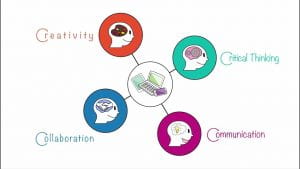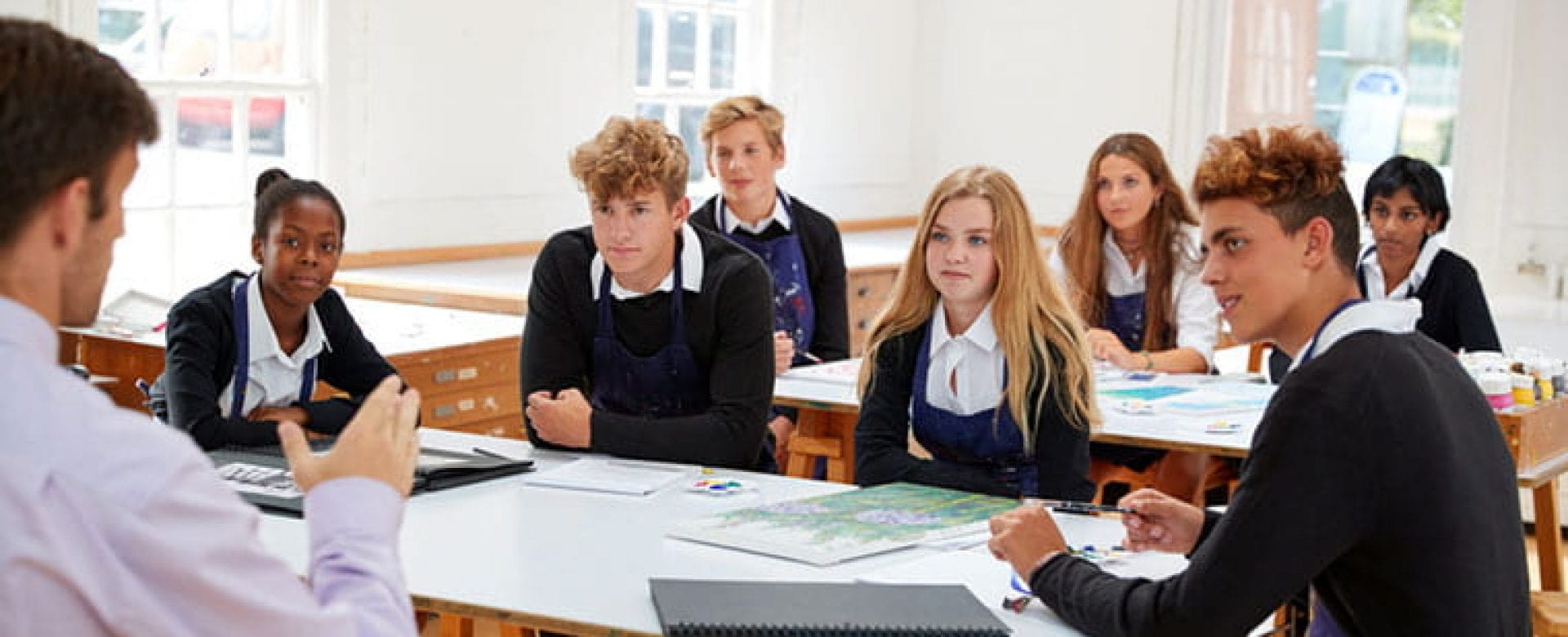
Covid-19 has dramatically shifted education into mainly distance learning. This has been essential and resulting in calls for a new approach to education. We certainly need a new approach but I disagree that distance learning is the way forward. Certainly distance learning can encourage a more flexible approach with a wider range of materials being available. Also, outside of education, modern technologies have helped families and friends to maintain communication. However, I argue that there are many downsides to distance learning and I call for it to be restricted after lockdown
What is Education for?
There are many reasons for education, the main one is to pass on knowledge. However, I believe that developing socially and emotionally is core to education. Developing as a person, within a community and thus having responsibilities to and for others, is key. Secondly, a pupil should learn about and experience democracy to takes one’s place in society. Critical to this is the commitment from pupils to forge equality including valuing collaboration, diverse friendships and community.
These aims cannot be fully achieved without social interaction with diverse others, an attention to developing emotional literacy, and social participation. Face-to-face interactions are essential. There are a great number of varying organisations worldwide who argue that schools should develop pupils in essential skills, such as the 4Cs – Communication, Creativity, Critical thinking and Collaboration. These four critical skills reinforce the need for social interactions.
Additionally pupils need to learn by themselves. This does not mean in isolation but instead by receiving help, support and through discussions with others.
Disadvantages of Distance Learning
Constructivist learning theory tells us that what is taught is not necessarily what is learnt, and transmission teaching can result in greater confusion. The reason that robots cannot teach is because the learning process is very varied, and depends on the views, experiences and attitudes that the pupils have. Teachers know they should start with where the pupils are. Simple knowledge can be learnt through rote learning, but understanding and application usually requires dialogue and discussion.
It has been shown that assessment for learning (AfL) improves learning. Assessment for learning is effective because the teacher uses a range of strategies to find out where the pupils are, and where they are going, and whether in the correct direction. Teaching and learning is a two way process. The teacher-pupil relationship is key to learning. All good teachers know and understand their pupils as people. This understanding will affect how much pupils develop their skills. We know that if pupils feel valued through teacher-pupil communications they are more likely to learn.
Distance learning provides little assessment for learning and there is a fragmented teacher-pupil relationship.
Educational differences due to social class and inequality will be exacerbated. Working at home requires not only a computer, but a good internet connection, a room where you can work, and help if needed. All of this requires a good standard of income. The less income you have the less you will be able to access these. In addition we know that some pupils come to school needing food. You cannot work effectively if you have a reduced diet.
When both parents have to work, they cannot supervise or help their children. Even Ivan Illich in Deschooling Society was clear that adult supervision and modelling was essential to learning.
There have been fears about social phobia or social anxiety. These are conditions where people find it difficult to enter into social situations, or, having done so, feel anxious. The social isolation caused by distance learning does not help address this, but can feed into it as person-to-person communication is avoided. This lack of person-to-person communication is already found when children play on gaming consoles or social media for hours. Key family and social interactions can be reduced. There is little research in distance learning but what little there is indicates that it reduces learning in comparison with face-to-face learning. Also that the learning varies with ability so that it can short change the venerable. Additionally, people who work on computers can multi-task, like deciding to have a game or go on social media, and this can decrease learning (see links below for evidence). The increase in distance learning can lead to an increase in social media use as friends cannot be met in class. Experts know that social media can be a fertile ground for adding to poor mental health and bullying:
However, there are also concerns that spending a lot of time on social media may increase anxiety because people may be exposed to cyber bullying. Bullying or being humiliated by peers has often been identified as a trigger for the development of social anxiety, so greater exposure to bullying on the internet could put people at increased risk. Even without bullying, it could increase anxiety to see so many people in your peer group socialising, achieving, having fun, being successful as this can lead us to compare ourselves unfavourably and be more likely to develop or maintain some of the cycles involved in social anxiety. https://www.thechelseapsychologyclinic.com/blog/social-anxiety-rise/
Knowing that social media can be linked to mental health issues, we can see how it is possible that distance learning over a long time could equally lead to an increase in social phobia and mental health issues.
Overall one of the main issues is the lack of emotional development through not having social interactions with others. In particular, contact theory research has shown that in order to tackle racism and sexism people need to meet together to interact and learn about each other. Such meeting can be structured to lead to an understanding of each other that can transcend stereotyping.
In all these cases physical meeting is an important ingredient, as it is with developing the 4Cs.
Conclusion
In the present lock-down situation distance learning is essential, despite the problems raised. The calls for a new approach to education is needed but not by continuing and expanding distance learning. It may have contributed greatly during a global pandemic but it feels, at best, a temporary fix. The development of humans is centrally through passing down skills and knowledge in addition to developing socially and emotionally. Education will always be about social and emotional development as well as the gaining of knowledge and trying to get pupils to value decency, fairness and humanity. Therefore we must keep distance learning as a small part of it and keep focusing on the social and emotional side of education in our schools.
Links:
https://www.edweek.org/ew/articles/2020/03/23/how-effective-is-online-learning-what-the.html
https://theweek.com/articles/830631/downside-online-learning
https://www.theguardian.com/education/2010/jul/06/distance-learning-higher-education
https://firstmonday.org/article/view/710/620
Engaging Education Consultancy
www.engagingeducation.co.uk


I thoroughly agree with the points made here about the need to limit the use of distance learning in schools after the Corvid-19 Crisis. My main concern is that distance learning encourages a teacher-led transmission-of-knowledge style of teaching at the expense of a more education conversational style of teachers which is so important for the development of pupils’ understanding, motivation, and personal, social and emotional education and development, and general well-being.